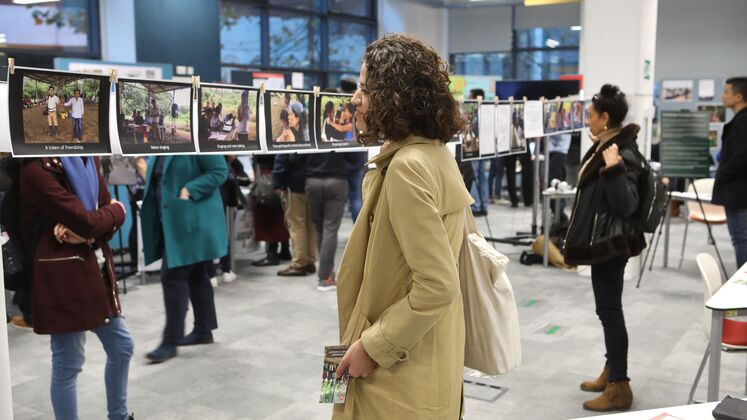Anthropology and Law is undoubtedly a unique degree and it’s only available at two other universities in the UK. To me, the combination was intriguing the moment I saw it. As LSE put it; “It combines all the benefits of a qualifying law degree with the intellectual and philosophical challenge of anthropology”. This means that in the three years of the degree, you become fully trained in both law and anthropology. More information on the key details of the degree, admissions, and entry requirements can be found here.
What made me choose it?
In my final year of school, I had many interests and was indecisive as to what to study. I enjoyed the skills required for law – reading texts closely, conveying material in a structured manner and arguing cohesively. However, I wanted to keep my options open. So, when I saw that LSE is offering a combined law degree with anthropology, I was intrigued. In addition to the subject, wanting to study abroad and having previously heard about LSE also played into my decision-making.
Granted, I knew nothing about anthropology but after doing some research I became curious. This led me to apply, based on my desire to understand how societies really worked as there were so many things I had studied in school or heard in the news that I did not understand in a wider context.
Academics

The course outline and module choices can be found here.
In the first year, I studied two law and two anthropology modules. Academically, the first term of my degree was hard because I had to learn how to read, write, and reference in two disciplines that I had never studied before. It was a steep learning curve, but I received helpful support from my academic mentor and class teachers. After writing the first few essays, I found my feet in studying both subjects. Studying anthropology and law will mean that you will get used to a wider range of assessments from the first year onwards. While first-year law students are only assessed by means of exams, anthropology students will have to produce at least two pieces of coursework in their first year. This practice proved useful in the upcoming years.
In my second year, I also studied an equal split between the two subjects. I was able to choose one optional anthropology module and went for the Anthropology of Kinship, Sex and Gender – which I can recommend, by the way. It challenged some of my preconceptions about gender, sex, and family life that I had learned growing up. At times, I found second year tough because I had little choice in what I was studying and did not enjoy every single topic. Yet, I was also surprised that I could find interest in some of the compulsory modules that I hadn’t expected.
In third year, three-quarters of my courses were in law which really made me feel like more of a law student than in the previous years. I chose to study two anthropology half-units based on my interests. In law, I chose to study competition law, which I fell in love with and decided to study in more depth during my current Master’s. Even though there is only one choice of law module in the entire degree, this choice can make a lot of difference. I enjoyed my studies a lot in third year, as the content was much more tailored to my personal interests.
Social life
The first thing to note is that the cohort of Anthropology and Law students is very small. I only graduated with around 15 others in my year. A small circle is not a bad thing, though. Everyone helped each other out and there was no competition whatsoever.
That said, studying two subjects exposes you to a greater amount of people in the classroom. Besides, in your second and third year, you will be studying with the law cohort from the year below. Obviously, beyond this, there are many other opportunities at LSE to make friends and I certainly did not find it difficult.
Career prospects

Graduates have gone on to do a variety of things. I personally have opted for an LLM to deepen my skills in certain legal areas I became interested in during my final year. As the degree is a qualifying law degree, some have gone on to do the LPC in preparation for becoming a trainee solicitor. Others will do bar training, work in the legal sector elsewhere, go into academia, or work in another sector.
The career prospects are wide-ranging. You could want a career in law but simply enjoy your studies a bit more. Doing this degree will certainly make you stand out!
What I liked most about the degree
The interdisciplinarity. I had a couple of ‘bridging seminars’ in my first year where we debated current issues relating to the intersection of anthropology and law. My favourite moments were those in which I could draw on one of the subjects studying the other.
What I liked least about the degree
Only having one law option to choose from in the entire degree. As I mentioned above, though, you will be able to make the most of the compulsory module if you remain open to it.
As I hope you can tell, I thoroughly enjoyed my three years studying BA Anthropology and Law. I would encourage anyone who’s unsure to apply. If you are thinking of applying, don’t hesitate to comment or contact me!






Bless the LSE Anthropology Department